
Results of a Swedish study support the physiologic and psychological benefits of regular yoga practice for patients with AF.

Results of a Swedish study support the physiologic and psychological benefits of regular yoga practice for patients with AF.
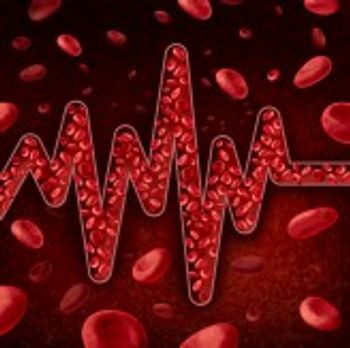
Results of a large Taiwanese registry analysis could open discussion around avoidance of oral anticoagulants in post-ICH patients.

Research into wine’s health potency is ongoing. Get a tasting of the latest findings with this quick quiz.

A new study suggests a higher risk for poor outcomes in patients with atrial fibrillation who present in atypical fashion.

The components may be equal on paper, but they may not be treated equally in clinical practice, according to new research.

Tonic or poison? Elixir or toxin? These slides offer a quick review of the latest findings on the health pros and cons of imbibing.
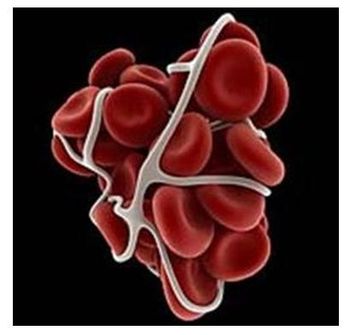
Critics continue to call for independent analysis by outside investigators not involved with the original trial.

The risk includes a 1.99X higher risk for stroke and 1.93X higher risk of CV mortality, according to new research.

Results of a Norwegian study add to the evidence that shows moderate aerobic exercise is appropriate in patients with symptomatic AF.
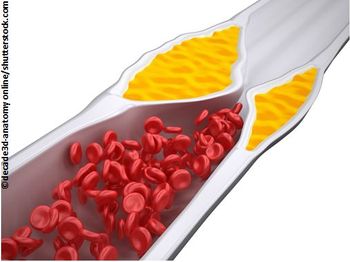
Find data here on obesity, exercise, and OSA, plus 4 more factors that increase the risk for AF and other CV disease.
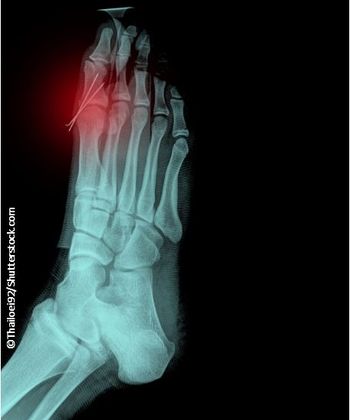
A large population-based study found more patients already had atrial fibrillation at gout diagnosis compared with controls.

Concern that equipment error may have led to higher doses of warfarin than necessary call the huge trial's findings into question.

Results of two recent studies suggest that perioperative "bridge" anticoagulation may do more harm than good in some patients.

Study results presented at the 2015 AHA meeting reinforce, once again, the critical role of persistent patient education on treatment adherence.
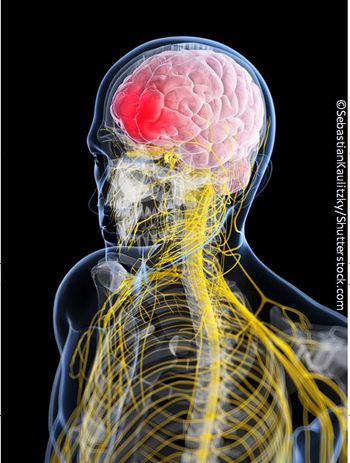
Data from a recent study suggest that paroxysmal AF may be underdiagnosed in patients with heart failure and preserved ejection fraction.

The anticoagulant reversal agent idarucizumab was approved as the antidote to dabigatran via the FDA's accelerated approval program.

Younger patients with AF of longer duration were found at higher risk for dementia, a recent study found.
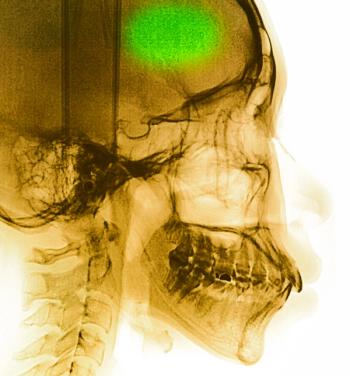
Guidelines recommend AF catheter ablation to help avoid use of oral anticoagulation. True or False? Answer this and 2 other queries on ablation.

Results of the BELIEF study presented at ESC 2015 suggest the adjunctive ablation procedure may enhance long-term rhythm control.

The first results from the largest ongoing international registry of newly diagnosed AF patients were long awaited, and worth the wait.

What if you could test the fit and function of a cardiac device in an exact replica of your patient's heart and head off complications before you start?

Paroxysmal atrial fibrillation is a first and only dx for some patients; for others it is just the beginning. What do you know about AF progression?
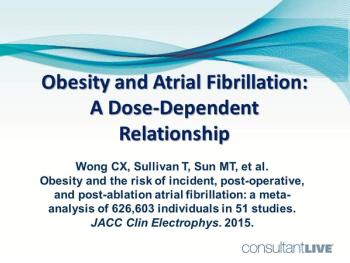
A recent literature analysis found a 10% to 29% excess risk for AF conferred by incremental increases in BMI. The study in 9 slides, here.
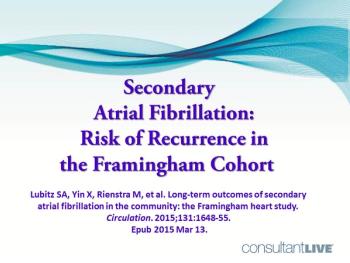
Is new-onset AF linked to an acute precipitant less likely to recur than spontaneous AF? Is it any less dangerous? A new study finds answers in Framingham data.

Two lesions have been slowly expanding on an older man’s chest for 2 years. What is the problem? This and questions on 3 other topics in this quiz.